 In the beginning of March, news broke that Elon Musk claimed, “College isn’t for learning.” This thought shocked me. All my life, all I ever heard was how college is where you go for higher education, to set yourself up to succeed in the workforce after graduation. This past semester, I was given the opportunity to be a full-time audit intern with BKD in Little Rock. There were countless times that I questioned whether the Accounting concepts I had learned in school were even relevant to the audit work that I was doing. Honestly, it was difficult at times to see the connection between classes and work, but the more I progressed through my job and began looking for it, I saw that it had been there all along. I also saw that college had taught me lots of other invaluable skills that made me perform better, and thus set me up to receive a full-time job offer upon graduation.
In the beginning of March, news broke that Elon Musk claimed, “College isn’t for learning.” This thought shocked me. All my life, all I ever heard was how college is where you go for higher education, to set yourself up to succeed in the workforce after graduation. This past semester, I was given the opportunity to be a full-time audit intern with BKD in Little Rock. There were countless times that I questioned whether the Accounting concepts I had learned in school were even relevant to the audit work that I was doing. Honestly, it was difficult at times to see the connection between classes and work, but the more I progressed through my job and began looking for it, I saw that it had been there all along. I also saw that college had taught me lots of other invaluable skills that made me perform better, and thus set me up to receive a full-time job offer upon graduation.
For those of you unaware of what auditing is, it is essentially a review and verification of the accounting records kept by a company before financial statements are issued and an assessment of their risks. The job is crucial because unaddressed risks or misrepresentation of these financial statements can cause investors and lenders to inappropriately gauge their ability to offer a return on investment. While I was working, I spent most of my time trying to figure out how to recreate what my company did the year before to test the accounting records. This allowed me to accurately and effectively complete the job. However, when I stopped and tried to understand what I was doing, I could clearly see how all of the long journal entry examples we had done in my classes were directly related to my audit procedures. As an auditor, I am not making the journal entries, but rather reviewing the support that leads to these entries and ensuring that the client made them correct and the balances reflected on their financial statements are accurate. I have to understand how and why certain entries are made to complete my job accurately, and then be able to explain it to my supervisors and the client so that they can do it better the next time. Those were technical skills I gained through practice in the classroom.
Generally speaking, I was able to figure out my classes with relative ease; however, I never felt more lost than when I did not have the previous year’s work to refer to in my internship. I thought because I had little trouble in classes, I would be able to succeed in my work without assistance. A main pillar of public accounting is integrity, so I had to learn when to ask my supervisors for help rather than come up with something to make the numbers work. There were several times that I realized about halfway through a big project that I was incorrectly performing audit procedures, and had to go back and start from the beginning to ensure I completed my work appropriately. I realized that signing your name off on incorrect work in college gives you a bad grade, but it loses your job in the real world. I had to budget my time much more strictly to prevent myself from spending too much time on one project and not wrapping up all of my assignments by the due date.
All of these were skills I had learned in college, albeit mostly indirectly. Most of the technical accounting knowledge I learned in school was foundational for the audit procedures I completed. They were much harder to identify, but if I did not have them built in to my brain from countless exercises in class, I no doubt would have been making simple errors repeatedly. My professors offer multiple times to just come talk to them if we have problems understanding concepts. Their friendliness and willingness to explain an example problem to me built my confidence in asking for help when I was unsure of something. Managing my classes workload and being an involved student meant that I had to manage my time to meet deadlines and keep good grades. Most of these skills were not taught straight out of a textbook, but I definitely learned them at college. I have to disagree with Elon Musk’s assessment of a college education’s value. Without the increased expectations that college faculty have for work, I would not have been set up to succeed in my internship.




